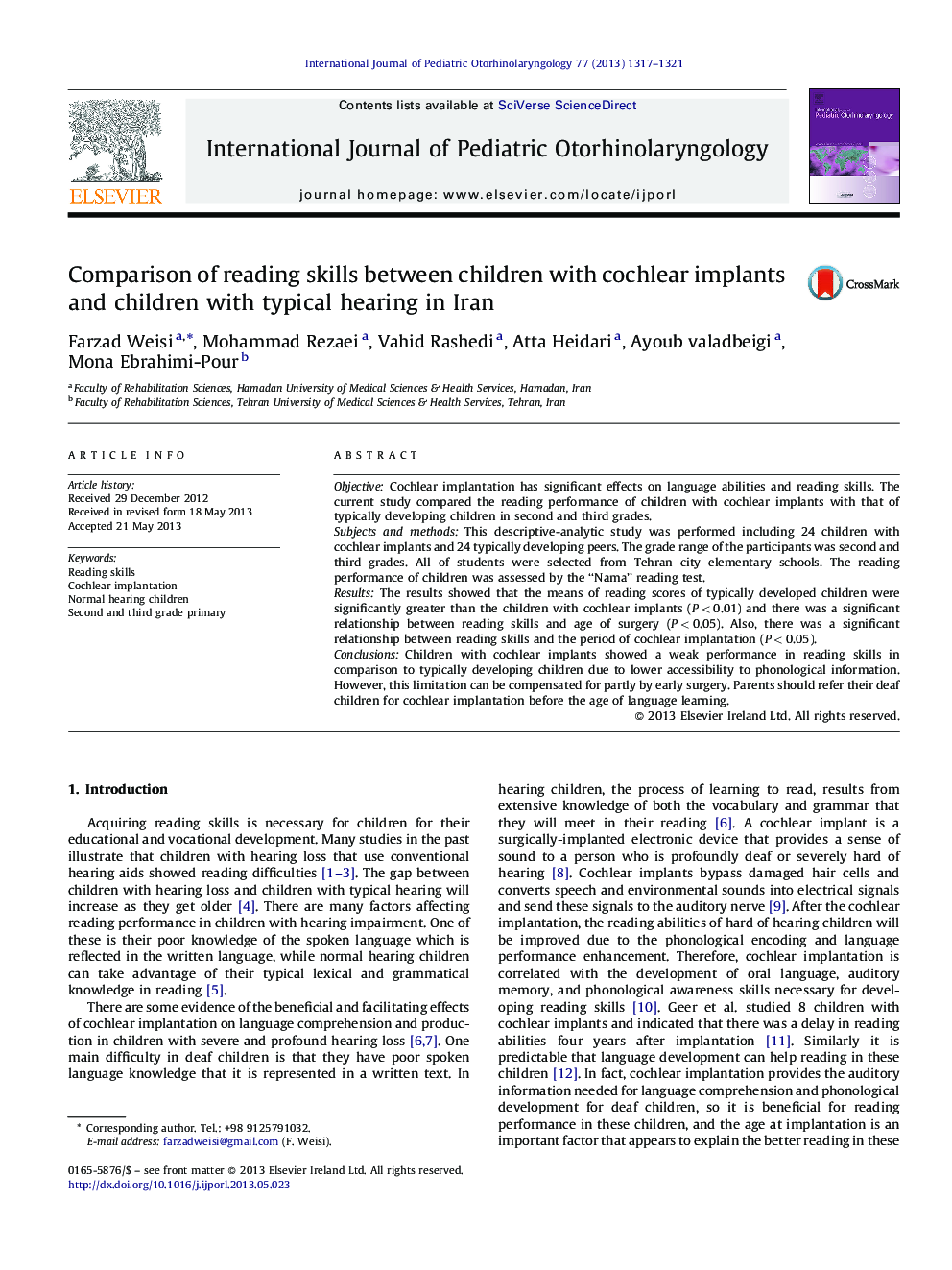| Article ID | Journal | Published Year | Pages | File Type |
|---|---|---|---|---|
| 4113053 | International Journal of Pediatric Otorhinolaryngology | 2013 | 5 Pages |
ObjectiveCochlear implantation has significant effects on language abilities and reading skills. The current study compared the reading performance of children with cochlear implants with that of typically developing children in second and third grades.Subjects and methodsThis descriptive-analytic study was performed including 24 children with cochlear implants and 24 typically developing peers. The grade range of the participants was second and third grades. All of students were selected from Tehran city elementary schools. The reading performance of children was assessed by the “Nama” reading test.ResultsThe results showed that the means of reading scores of typically developed children were significantly greater than the children with cochlear implants (P < 0.01) and there was a significant relationship between reading skills and age of surgery (P < 0.05). Also, there was a significant relationship between reading skills and the period of cochlear implantation (P < 0.05).ConclusionsChildren with cochlear implants showed a weak performance in reading skills in comparison to typically developing children due to lower accessibility to phonological information. However, this limitation can be compensated for partly by early surgery. Parents should refer their deaf children for cochlear implantation before the age of language learning.
